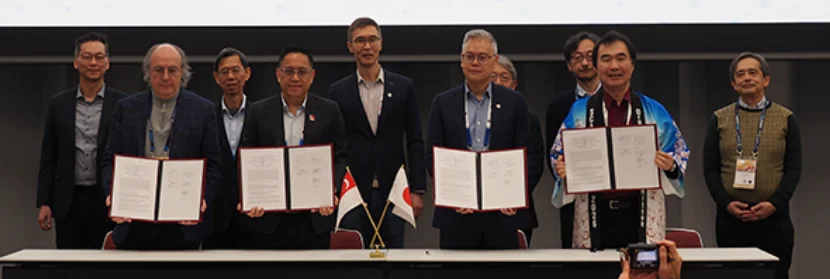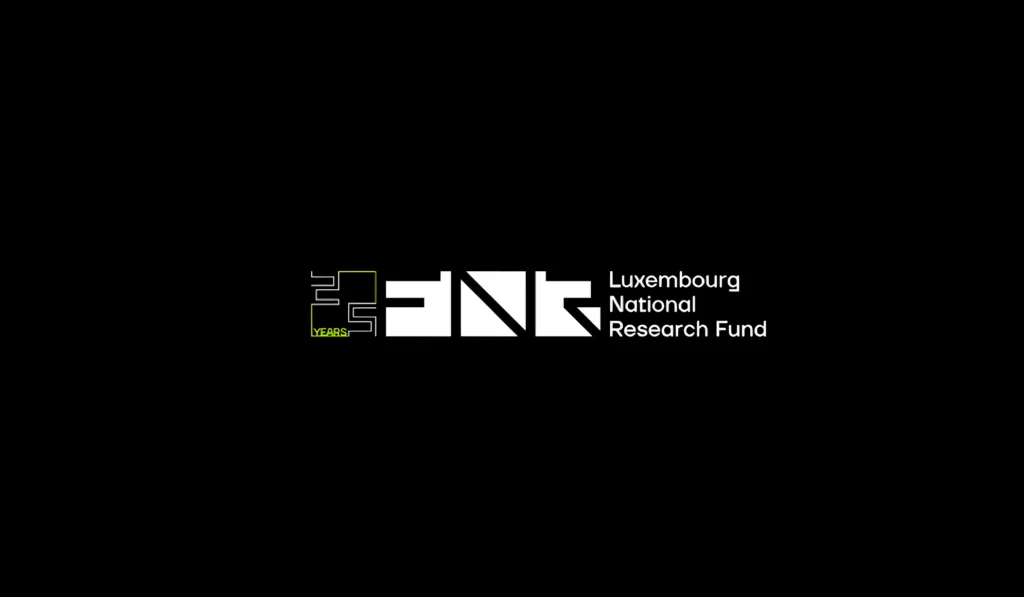“The Superposition Guy’s Podcast”, hosted by Yuval Boger, CCO at QuEra Computing
Kathrin Spendier, the technical prize director of XPRIZE Quantum Applications, is interviewed by Yuval Boger. Kathrin discussed her role in driving the quantum applications competition. The competition aims to discover quantum algorithms that demonstrate quantum advantage for real-world problems, with a $5 million prize purse divided over three years. She explained the application process, the types of problems targeted, and the importance of collaboration among participants, and much more.
Listen on Spotify — here

Full Transcript
Yuval Boger: Hello, Kathrin. Thank you for joining me today.
Kathrin Spendier: Thanks for having me, Yuval. I’m very excited to be here and looking forward to our conversation.
Yuval: Wonderful. So who are you and what do you do?
Kathrin: So I am currently the technical prize director of XPRIZE Quantum Applications. I started this role about two months ago. Before that, I was a quantum technology evangelist at Quantinuum. My focus was on TKET, Quantinuum’s open source quantum SDK. I was traveling around universities and telling people about the SDK and how it works. I was very much involved in university outreach. And that pretty much aligns with where I came from before because I was at the University of Colorado Colorado Springs for 10 years. I was a tenured faculty in the physics department and although I wasn’t in quantum computing at that time, I actually was a biophysicist. running a research lab on optical microscopy and how to apply it to study live cells. so my background is physics and I’m from Austria. and now I’m here and I’m working with XPRIZE to push the boundaries of quantum applications.
Yuval: What is XPRIZE?
Kathrin: XPRIZE is a nonprofit foundation and it’s existed for about 30 years. So this year we celebrated our 30-year anniversary. Our main goal is to find challenges we have as humanity. And then in order to overcome these challenges, the idea is that you have a competition in order to get more people involved—scientists, entrepreneurs, individuals—to solve these really hard problems that you need to solve in order to make sure that humanity is moving forward. And we’re not getting stuck in certain areas that might not be good. we have a lot of different prizes. Some of them are about how to achieve clean water. How can we, for example, protect our rainforests, our biodiversity. we have a lot of different prizes that are ongoing right now. And you can learn about them on XPRIZE.org. But pretty much the idea is you have a competition, you have very tough problems, and XPRIZE is trying to make the competitions audacious. So something that pushes you to do more than you normally would do in everyday life. there’s a lot of information out there you can read. I think over the 30 years, there’s like 10,000 innovators that have joined XPRIZE. So the community is quite big and it’s growing.
Yuval: The Quantum Challenge of XPRIZE is probably not 30 years old. When did it launch and what is the challenge? What’s the challenge? What’s the prize? What can you tell us about the Quantum Challenge?
Kathrin: Yeah, so the Quantum Challenge launched in March of this year and it’s a three-year competition, and we have our sponsors who are Google Quantum AI and GESDA. So they came together to form this prize in a three-year competition. And the idea here is that in three years, we hopefully have teams that join and we are hopeful that we come up with an algorithm that actually has quantum advantage for real-world problems. So the idea here is that we have these global challenges which the XPRIZE competitions are all about. And we are trying to make sure that when quantum computing gets to a point where you have very good hardware where you can solve challenging problems, that we also have the algorithms that can support running very meaningful problems. But we are a little bit behind with the algorithm development. So the competition is about finding these algorithms that have quantum advantage and that also solve meaningful problems that help humanity to move forward.
Yuval: If a team is so lucky and so smart to win the prize, how much is the prize or what is the prize?
Kathrin: So the prize purse overall, for the three years is $5 million. And the way XPRIZE has been operating in this competition is that this prize purse is divided up over the competition period. So for XPRIZE quantum applications, the first million dollars, so $1 million out of the $5 million will be given out after phase one is completed sometime near the end of 2025. And up to 20 teams will share this $1 million. And then these 20 teams and possibly some wildcard entries will move forward to phase two. And at the end of phase two, which is completed after three years, so that will be in early 2027, you will have a prize purse of $4 million that is remaining. And up to three winning teams will share $3 million. And then we’re going to have some runner-ups, possibly two to five that will share $1 million.
Yuval: What does it take to apply? Do I need to select a problem or to suggest a problem? How would people know what they believe they can solve in three years with quantum advantage?
Kathrin: Yes, applications are open until the end of July of this month, so July 31st. And it has kind of three steps to it. There’s a registration form you have to fill out. As a team, you can pretty much be an individual competitor. You can come from a startup company. You can be at a university. You can have teams that have multiple people from different areas. And pretty much you sign up, you register a team, you share some information with us regarding what you’re interested in, what’s your background, what you’re looking forward to in the competition. You can share with us what you would like to submit, but you can also say you’re still thinking. So this is a registration form. It takes you five to 10 minutes to fill out. Then we have a registration fee, and then we have the competitor agreement. That’s kind of the legal structure that your team is forming. And then you have an exchange with XPRIZE. And that also has to be reviewed and signed by your entity, which could be a university, for example. And then once all of this is done, you are registered. At this point, you can still be in that initial, nascent phase if you wish.
Yuval: So I basically don’t have to say what is the problem I want to solve, just that I’m forming a team and agree to the terms of the competition.
Kathrin: So that’s totally fine. So we do have three areas of submissions. We call them novel algorithms, where teams come up with a new algorithm that has quantum advantage and is applied to real-world problems. For example, material science, maybe you’re developing something that can help in terms of carbon sequestration. Or you can enhance an already existing algorithm. So there’s an existing algorithm out there that has been shown to have quantum advantage, but you can enhance it somehow and then also apply it to real-world problems. So imagine right now there’s an algorithm out there, people say they have quantum advantage, but in order to apply it, you need to have 100 error-corrected qubits, for example. But if you can go in and you take this quantum algorithm and you can make a change to it, you can show actually that something was overlooked, and now you can bring it more near term, that will be very exciting for an application, for example. Or you can have an algorithm that was developed but initially not thought to be applicable to this problem space. So that could be another entry. But you don’t have to be specifically stuck to novel algorithms, enhanced algorithms, or a new application type. You can also maybe have something else you can think of, or you can say, I don’t know. I think one-fifth of the teams that have currently filled out the registration form indicated they don’t know yet. So there are some, I would say the majority right now, almost a third, will work on novel algorithms.
Yuval: The problems, it seems, have to be helpful to humanity, right? So if a team just found a way to make Shor’s algorithm run much better or with fewer resources, and the goal is to crack the world’s financial system, that’s probably not a good fit for XPRIZE.
Kathrin: Oh, it depends. So we are suggesting that you should look at sustainability problems or other global challenges. But in any case, as a team, you make the argument of why it’s important. It really depends on the application you can think of, how many people are affected by it. And sometimes these applications may have a larger impact. The problem space is pretty wide and the judging criteria are fairly distributed. So in case you score high in one category, you may score less high in the other, but overall you’re still very competitive. So I think you can really explore these things and you never know, maybe you come up with a new idea, a new application. So yeah, I wouldn’t be worried about it.
Yuval: What can you tell me about the judges and the judging criteria? Who are they and what are they looking for?
Kathrin: Before the prize was launched, there was a lot of outreach to the current experts in the field. So we have a very diverse group of judges. They’re also posted on our website if you go xprize.org and then choose the Quantum Applications prize and then scroll down to the Judges. There’s obviously support by Google Quantum AI as one of the sponsors besides GESDA. And then we also have people from Amazon Web Services, we have Harvard University, Microsoft. So we do have judges that are fairly distributed, the categories we thought we needed right now, but judges are still able to enter and help us. So we still have a need for judges and as the applications come in and as teams share more information about their entries, there’s room for changing judges in the sense of adding more judges, and I think we will need more judges.
Yuval: If a team develops a new algorithm, do they continue to own that algorithm if they submit it to XPRIZE?
Kathrin: Yes, they own the IP. Yes, that stays with the team. So of course, it then depends on your internal agreement. If the entity you’re working with is, for example, a university entity, then you have different rules internally, or if you work for a national lab, for example. So, but in principle, whoever the entity entering the agreement with XPRIZE is, that entity will own the IP.
Yuval: What is the role of a technical director? When should people reach out to you? What kind of questions can you help with?
Kathrin: That’s a good technical question. So if you are in academia, think about the technical director being the same as your NSF program director. I am the point of contact for you. You reach out with the questions, something is not clear, going through a registration process. You have questions about the competitor agreement, you reach out to me. I’m your point of contact in that sense. I am here to help you to be most successful in this competition. So there are no barriers to reach out to me. So please do. That’s my role. I’m managing the everyday schedule. I’m helping, for example, develop the guidelines. I’m in contact with judges and advisors to make sure that they give the input. Then I’m also helping, for example, to get the word out. So I’m doing active outreach as well at the moment. The role will change a little bit as we move forward.
Yuval: Does the team need to show that the algorithm works on an actual computer? So for instance, if there’s this new breakthrough algorithm and it requires 500 logical qubits and at the time of judging, there is no computer that can run 500 logical qubits, does that still qualify?
Kathrin: So that’s a good question. I have gotten this question a couple of times. So really what we’re looking for is a quantum algorithm that can be applied at one point where we can apply it on a quantum computer. what the competition is about is how near-term your application is. It doesn’t have to be run right now on a quantum computer or in three years. If we get to a point where the hardware is at the stage where you can run your algorithm and where you show advantage, that would be just amazing. But in principle, it doesn’t have to be applicable right now. So how near-term, how high-impact, how much of a thought delta is there in your submission.
Yuval: You mentioned that you get this question a lot. What other questions do you get a lot? What is frequently asked that you want to share?
Kathrin: So one question I do get is from young scientists. From students that enter the workforce and are still studying or starting their graduate degrees, for example, they’re asking, “Am I even competitive for this kind of competition?” And I point out that XPRIZE is a little bit different. XPRIZE Quantum Applications is different than a normal proposal you write. So normally you write a proposal, you get the money and you work on your idea. But for XPRIZE Quantum Applications, you kind of get the award afterwards. So you get the prize after you submit and complete it. And we actively want teams to collaborate. So even though you as an individual don’t have all the experience needed, for example, you are not an error correction expert or you’re not a classical compute expert. But if you join, there’s a possibility of matching up with other teams. So you become an addition to a team. As a team together, you then come up with a very competitive idea. So it’s about networking as well. It’s about starting at a certain level and then throughout the competition, you will develop more experience. You want to get more insights. You’re going to have a better network. And you will contribute with your background. So that’s why I tell them, “Don’t be discouraged. Join. And you don’t know who you’ll find and who you can team up with.” So we really want to make sure that people talk to each other. And that’s one thing about the competition itself. There was this initial opinion in the field, and especially by the sponsors too, that sometimes quantum algorithm developers, they think about an algorithm, but they’re not necessarily thinking about the application. And if you are, for example, you are a material scientist. You know a problem doesn’t work well. And you think maybe quantum computing applies, but you don’t really talk to a domain expert or an expert in quantum algorithms. So there is not a good conversation right now. We hope with XPRIZE Quantum Applications, we can overcome that. An algorithm expert would say, “Oh, look at this algorithm. It can do this given these bounds.” And then the domain expert can say, “Oh, cool. Now I know the bounds. So possibly this could be an application.” And then there’s this exchange that we hope to be able to amplify more. We need more of that in order to push quantum algorithm development forward. And that was one of the reasons why we have this competition right now.
Yuval: If I heard correctly, there are three grand prizes of a million dollars at the end of the event, and then additional teams might share some additional prizes. Could you remind us when is the deadline for registration and how many teams would you hope that show up?
Kathrin: Yeah. Thanks. the registration deadline is July 31st of this month, but we also have something called wildcard entries. So for example, you’re working on something, you haven’t heard about the competition. Or you forgot about it, you forgot to sign up, and then you can have an entry afterward. So, for example, the judges will look at your idea and then you can enter the competition at a later time as well. The earlier you can join, the better it is because we have these team formation events where you can exchange ideas. So that’s one part of it. And then I forgot the other question you asked.
Yuval: The other question was how many teams do you think might show up?
Kathrin: Yes. So at the moment, we have over 450 teams that showed interest. So it’s hard to say, they have to fill out the registration form and the registration fee and the competitor agreement. So in my personal opinion, anything between 100 and 200 teams will be amazing. That’s a big delta, but I think we’re going to get there. Anything above that number would be stellar. And I don’t know, it would be difficult to find a lot of judges for this, but we will do our best. So yes, that’s where we are right now.
Yuval: As a former tenured faculty, you will have to grade or initially grade many, many applications to begin with, I think. So you have, I think, a lot of work coming your way.
Kathrin: That’s a lot of work coming my way. My role is to really help the judges develop very well-defined judging criteria so that they can go over the applications and are able to judge them. So there’s going to be some review, but really the hard work is done by the judges. So we’ll try to make the role as streamlined as possible.
Yuval: One last, perhaps unrelated to XPRIZE, I wanted to ask you a hypothetical question. If you could have dinner with one of the quantum greats, dead or alive, who would that person be?
Kathrin: Oh, that is a really good question. I think for me, it’s definitely Einstein. I would love to have dinner with him. Of course, obviously, in his career, there were many, many things he developed, and he was very experienced in, and he pushed a lot of boundaries and new ideas and such. But for me personally, the conversation I would like to have is how did he interact with young minds? How did he inspire them to follow his footsteps? I think this is really something that personally drives me still, being in this field, because I think we need young minds, we need more people that take the torch, that keep pushing forward. And I think it’s more and more difficult for a very specific field sometimes to get young people excited in what you’re doing. Because sometimes they don’t see the big purpose, or you get kind of distracted by other things that come your way. And some people come in later in life to find their path in science. So anyways, I would like to know what experience he had and how he would circumvent that in order to push science forward and big discoveries. So that would be great to have this conversation.
Yuval: Wonderful. Kathrin, thank you so much for joining me today.
Kathrin: thank you, Yuval, for having me and looking forward to your next podcast as well. Thank you.
To subscribe to the audio podcast, please Spotify here















